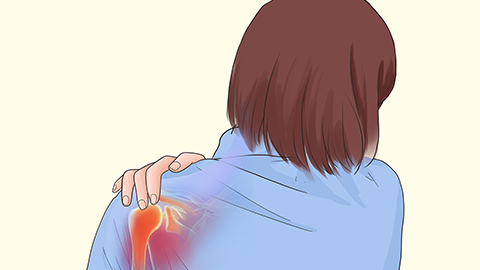What are the common causes of shoulder periarthritis?
Generally, common causes of periarthritis of the shoulder may include aging, long-term poor posture, shoulder strain, shoulder trauma, and rotator cuff injuries. It is recommended to seek medical attention promptly, identify the cause, and undergo symptomatic treatment under a doctor's guidance. Detailed analysis is as follows:

1. Aging: With age, the soft tissues of the shoulder gradually degenerate, and the tendons and ligaments lose elasticity, making them prone to inflammation and adhesion, which can lead to periarthritis of the shoulder accompanied by restricted shoulder movement. This condition is commonly seen in people around the age of 50. Daily attention should be paid to keeping the shoulder warm, avoiding cold exposure, and engaging in gentle exercises such as shoulder circles and chest expansions to delay soft tissue degeneration and reduce inflammation.
2. Long-term poor posture: Prolonged periods of working with the head bent forward or hunched over a desk can keep the shoulder muscles in a constant state of tension, leading to impaired blood circulation and chronic soft tissue injury, which can cause periarthritis of the shoulder accompanied by shoulder pain and stiffness. Adjust work posture, get up and move the shoulders every hour, perform actions such as lifting your head and shrugging your shoulders to relax the muscles, choose appropriately high tables and chairs, and avoid prolonged pressure on the shoulders.
3. Shoulder strain: Long-term repetitive shoulder movements can cause excessive wear and tear on the shoulder muscles and tendons, leading to chronic inflammation and the development of periarthritis of the shoulder, accompanied by increased pain during movement. Reduce shoulder load and repetitive movements, rest during acute episodes, and engage in shoulder functional exercises after pain relief. Use medications such as diclofenac diethylamine gel, ibuprofen ointment, and flurbiprofen gel patches as directed by a physician to reduce inflammation and pain.
4. Shoulder trauma: Failure to treat or improperly recover from a shoulder sprain or strain can result in adhesion during the soft tissue healing process, leading to periarthritis of the shoulder accompanied by tenderness at the injury site and restricted movement. Rest and immobilization should be carried out promptly after injury, and rehabilitation training should be conducted under medical guidance to avoid excessive movement that could worsen the injury. Medications such as celecoxib capsules, etoricoxib tablets, and Huoxue Zhitong capsules may be taken as directed by a physician to promote recovery and reduce adhesion.
5. Rotator cuff injury: Tearing or damage to the rotator cuff tendons leads to decreased shoulder stability, secondary shoulder joint inflammation and adhesion, causing periarthritis of the shoulder accompanied by arm-lifting weakness and significant nighttime pain. Mild injuries can be relieved by rest and immobilization, and medications such as eperisone hydrochloride tablets, compound chlorzoxazone tablets, and paracetamol tablets may be used as directed by a physician, along with physical therapy to promote healing.
Daily shoulder protection should be emphasized, avoiding sudden exertion or excessive loading. Warm up properly before exercising and choose appropriate exercises to strengthen the shoulder muscles. Keep the shoulder warm in cold weather, avoid direct exposure to cold winds, and apply heat to the shoulder to improve blood circulation and prevent the onset of periarthritis of the shoulder.






